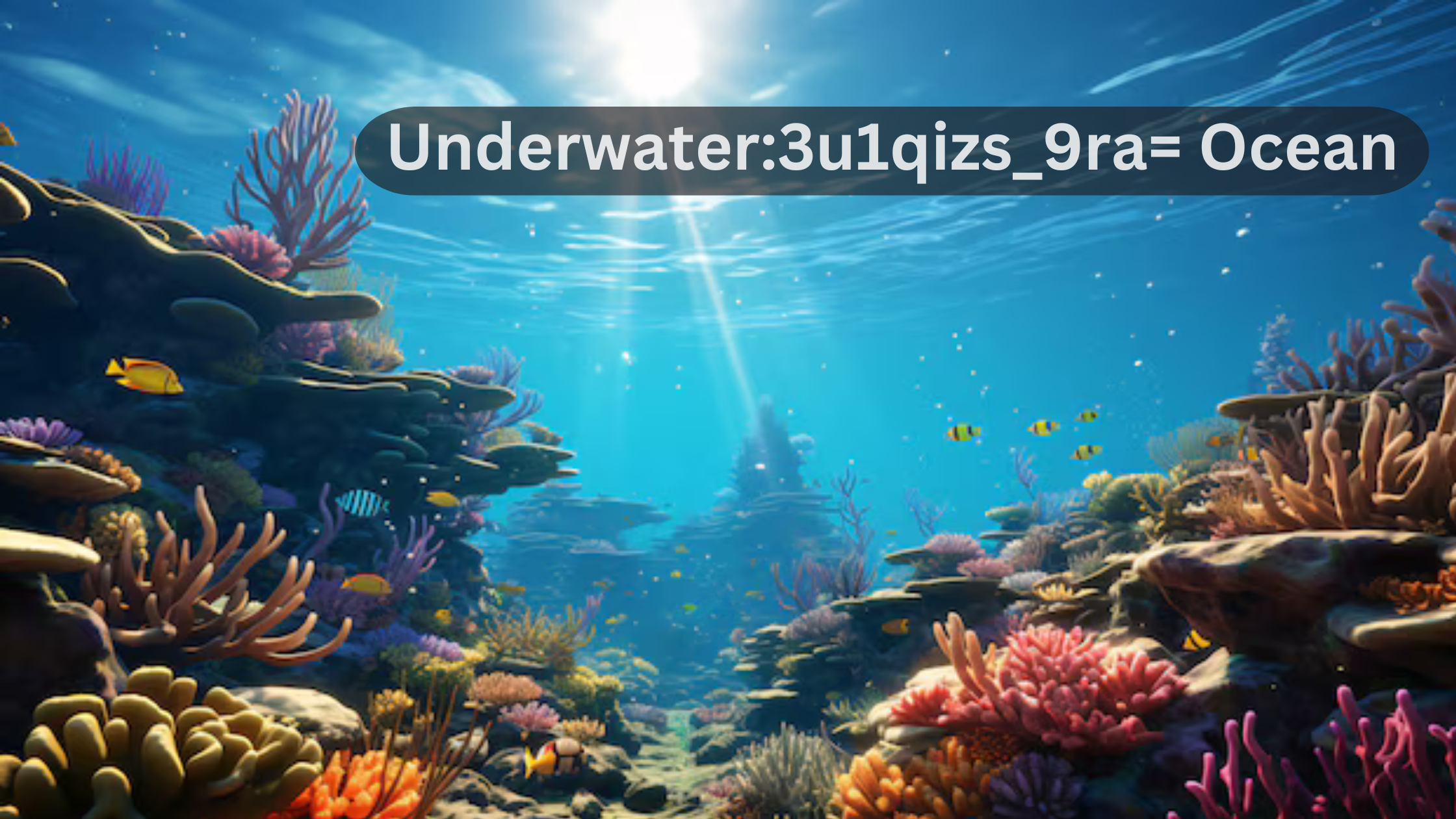Introduction – Underwater:3u1qizs_9ra= Ocean
Underwater:3u1qizs_9ra= Ocean offers a captivating exploration of the vast and mysterious depths of the ocean. From the colorful coral reefs teeming with life to the dark abyssal zones where only the most resilient creatures survive, the underwater world is full of wonders waiting to be discovered. Underwater:3u1qizs_9ra= Ocean is not just about exploring the physical aspects of the ocean but also understanding the complex ecosystems that thrive within this expansive blue world.
Underwater:3u1qizs_9ra= Ocean – The Diverse Ecosystems Beneath the Waves
Underwater:3u1qizs_9ra= Ocean is home to some of the most diverse ecosystems on the planet. These ecosystems range from the sunlit surface waters, where photosynthetic plankton flourish, to the dark, cold depths where unique species like the anglerfish and giant squid reside. Each layer of the ocean, from the epipelagic to the hadalpelagic zone, supports distinct life forms adapted to their specific environments.
The coral reefs, often referred to as the “rainforests of the sea,” are among the most vibrant ecosystems found in Underwater:3u1qizs_9ra= Ocean. These reefs provide habitat and food for a wide variety of marine species, from tiny fish to large predators. Mangrove forests and seagrass beds, often overlooked, are equally important, acting as nurseries for many marine species and playing a crucial role in maintaining the health of the ocean.
Underwater:3u1qizs_9ra= Ocean – The Importance of Coral Reefs
Coral reefs are a vital part of Underwater:3u1qizs_9ra= Ocean, offering not only a home to countless marine species but also protecting coastlines from erosion and storm damage. These reefs are formed by colonies of tiny animals called coral polyps, which secrete calcium carbonate to build the reef structure. The symbiotic relationship between coral and zooxanthellae algae, which live within the coral tissue, is essential for the reef’s survival and growth.
Underwater:3u1qizs_9ra= Ocean coral reefs are under threat from a variety of human activities, including overfishing, pollution, and climate change. Rising ocean temperatures and acidification are particularly harmful, causing coral bleaching and weakening the reef structure. Efforts to protect and restore coral reefs are crucial for maintaining the biodiversity and ecological balance of the ocean.
Underwater:3u1qizs_9ra= Ocean – The Mysteries of the Deep Sea
The deep sea, often considered the final frontier of Underwater:3u1qizs_9ra= Ocean, remains largely unexplored and holds many secrets. The extreme conditions of high pressure, low temperatures, and complete darkness create a unique environment where only the most specialized creatures can survive. The discovery of hydrothermal vents and cold seeps has revealed thriving communities of organisms that rely on chemosynthesis rather than photosynthesis for energy.
In Underwater:3u1qizs_9ra= Ocean, the deep-sea exploration has led to the discovery of fascinating creatures, such as the bioluminescent jellyfish, the giant squid, and the elusive deep-sea anglerfish. These organisms have adapted to their harsh environments in extraordinary ways, using bioluminescence, specialized feeding mechanisms, and unique reproductive strategies. The deep sea continues to be a focus of scientific research, as understanding these ecosystems could provide insights into the origins of life and the potential for life on other planets.
Underwater:3u1qizs_9ra= Ocean – The Role of Ocean Currents
Ocean currents are a critical component of Underwater:3u1qizs_9ra= Ocean, playing a major role in regulating the planet’s climate and supporting marine life. These currents, driven by wind, water density differences, and the Earth’s rotation, transport warm and cold water across the globe, affecting weather patterns and sea temperatures. The Gulf Stream, for example, carries warm water from the Gulf of Mexico to the North Atlantic, influencing the climate of Europe.
In Underwater:3u1qizs_9ra= Ocean, currents also play a vital role in nutrient cycling, bringing nutrient-rich deep waters to the surface, where they support the growth of phytoplankton, the foundation of the marine food web. Understanding the dynamics of ocean currents is essential for predicting climate change impacts, managing fisheries, and conserving marine biodiversity.
Underwater:3u1qizs_9ra= Ocean – Human Impact on the Ocean Environment
Human activities have significantly impacted Underwater:3u1qizs_9ra= Ocean in various ways. Overfishing has led to the depletion of many fish populations, threatening the balance of marine ecosystems. Pollution from plastics, chemicals, and oil spills has caused widespread damage to marine habitats and species. Climate change, driven by increased greenhouse gas emissions, is causing ocean warming, acidification, and sea level rise, all of which pose severe threats to the health of the ocean.
Efforts to mitigate these impacts are crucial for the future of Underwater:3u1qizs_9ra= Ocean. International agreements, such as the Paris Agreement and the United Nations Convention on the Law of the Sea, aim to reduce carbon emissions, protect marine biodiversity, and promote sustainable use of ocean resources. Local and global conservation initiatives, such as marine protected areas and sustainable fishing practices, are also vital for preserving the ocean’s health.
Underwater:3u1qizs_9ra= Ocean – The Future of Ocean Exploration
The future of Underwater:3u1qizs_9ra= Ocean exploration is promising, with advancements in technology enabling deeper and more extensive research of the ocean’s depths. Remotely operated vehicles (ROVs), autonomous underwater vehicles (AUVs), and advanced sonar mapping technologies are allowing scientists to explore previously inaccessible areas and make groundbreaking discoveries.
These technologies are helping us better understand the complex ecosystems of Underwater:3u1qizs_9ra= Ocean, the geological features of the seafloor, and the biological diversity of marine life. Continued investment in ocean research and exploration is essential for uncovering the mysteries of the deep sea, developing sustainable ocean management strategies, and ensuring the long-term health of the ocean environment.
Underwater:3u1qizs_9ra= Ocean – Conservation Efforts and Sustainable Practices
Conservation efforts are essential for preserving the health of Underwater:3u1qizs_9ra= Ocean and its ecosystems. Sustainable practices, such as reducing plastic use, supporting sustainable seafood, and protecting marine habitats, can help mitigate human impact on the ocean. Marine protected areas (MPAs) are a key tool for conserving marine biodiversity, providing safe havens for species to recover and thrive.
Public awareness and education are also crucial components of conservation efforts in Underwater:3u1qizs_9ra= Ocean. By understanding the importance of the ocean and its ecosystems, individuals can make informed choices that support ocean health, from reducing carbon footprints to participating in beach cleanups and supporting ocean-friendly policies.
Conclusion – Underwater:3u1qizs_9ra= Ocean
In conclusion, Underwater:3u1qizs_9ra= Ocean is a vast and diverse environment that plays a crucial role in sustaining life on Earth. From the vibrant coral reefs to the mysterious depths of the deep sea, the ocean is full of wonders waiting to be explored and understood. Protecting and preserving Underwater:3u1qizs_9ra= Ocean is essential for maintaining the balance of our planet’s ecosystems and ensuring a sustainable future for all.


